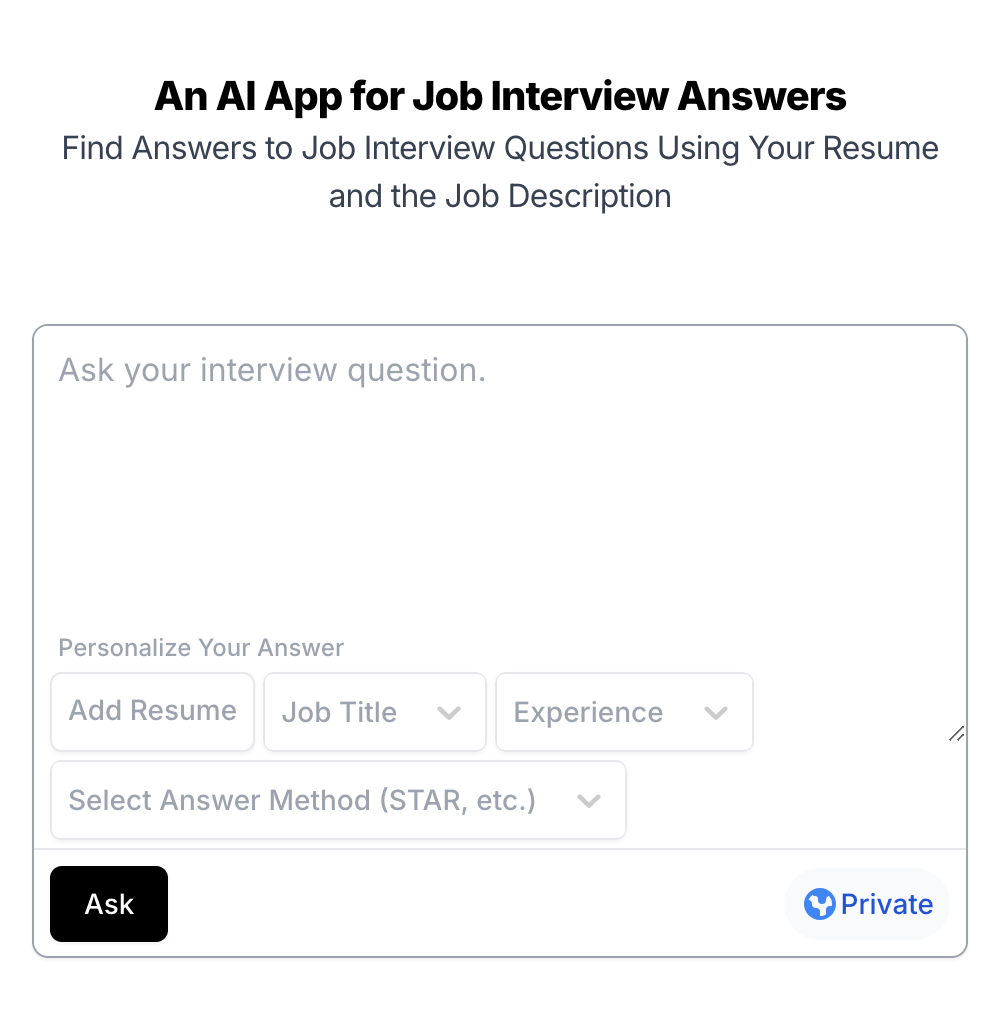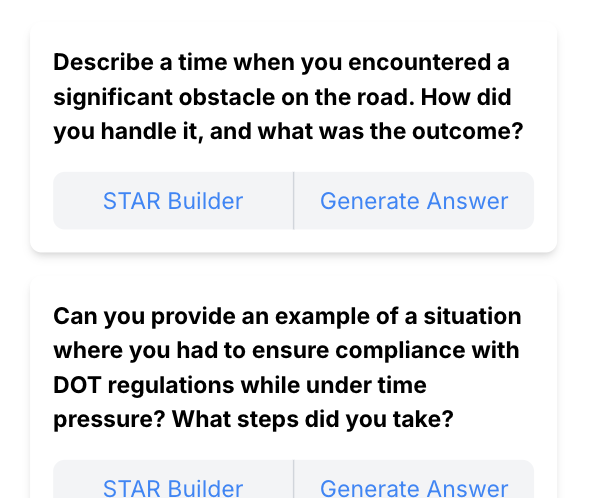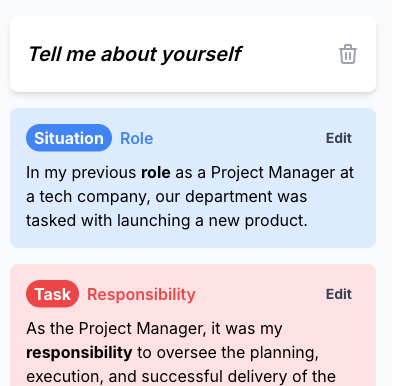
Traditional Interview Questions: What You Need to Know
Sat Aug 24 2024•Author: InterviewPro AI
Table of Contents
- What Are They?
- Common Examples
- Answer Length
- What to Avoid Saying
- Possible Follow-Ups
- More Follow-Up Questions
- When They're Asked
- Who Asks Them
- Why They Matter
- How to Answer Well
- Answer Structure
What Are They?
Traditional interview questions are standard questions that employers often ask. They focus on your background, skills, and career goals. These questions help employers learn about you and see if you fit the job and company.
5 Common Examples
- Tell me about yourself.
- What are your strengths and weaknesses?
- Why do you want to work here?
- Where do you see yourself in five years?
- Why should we hire you?
Answer Length
Keep your answers to about 1-2 minutes. This gives you enough time to share useful information without talking too much. Your answer should be clear and to the point.
What to Avoid Saying
Don't say these things when answering traditional questions:
-
Don't badmouth previous employers Bad example: "My last boss was terrible, so I quit." Why it's bad: This makes you look negative and unprofessional.
-
Don't give vague answers Bad example: "I'm a hard worker" (without giving examples) Why it's bad: This doesn't prove your skills or experience.
-
Don't lie or exaggerate Bad example: "I'm an expert in every programming language." Why it's bad: Lies can be discovered and ruin your chances.
-
Don't focus on personal issues Bad example: "I need this job because I have a lot of debt." Why it's bad: This doesn't show how you can help the company.
-
Don't say you have no weaknesses Bad example: "I don't have any weaknesses." Why it's bad: This shows a lack of self-awareness.
-
Don't give irrelevant information Bad example: "I love pizza" (when asked about your career goals) Why it's bad: This wastes time and doesn't answer the question.
-
Don't show a lack of interest Bad example: "I don't know much about your company." Why it's bad: This suggests you're not really interested in the job.
Show that you're professional, self-aware, and genuinely interested in the position.
Possible Follow-Ups
After you answer, the interviewer might ask more questions to get more details. They could ask about:
-
Specific examples: They might want you to give real-life situations. Example: "Can you give an example of how you used that skill in your last job?"
-
Your motivations: They could ask why you made certain choices. Example: "Why did you choose to study that subject in college?"
-
Your future plans: They might ask about your career goals. Example: "How does this position fit into your long-term career plans?"
-
Your knowledge of the company: They could test how much you know about them. Example: "What do you know about our company's recent expansion?"
-
Your problem-solving skills: They might ask how you'd handle certain situations. Example: "How would you deal with a difficult customer?"
5 More Follow-Up Questions
- "What's the biggest challenge you've faced in your career so far?"
- "How do you stay updated with industry trends?"
- "Can you describe a time when you had to work under pressure?"
- "What's your preferred work style?"
- "How do you handle constructive criticism?"
When They're Asked
You might hear these questions at different stages:
-
Initial Phone Screening: You'll likely get basic traditional questions here. Example: "Why are you interested in this position?"
-
First In-Person Interview: This is when you'll probably get most traditional questions. Example: "What are your greatest professional achievements?"
-
Second or Third Interviews: You might get more in-depth traditional questions here. Example: "How do you see yourself contributing to our company culture?"
-
Final Interview: They might revisit some traditional questions to confirm their impressions. Example: "After learning more about the role, why do you think you're the best candidate?"
-
Panel Interviews: Different interviewers might ask various traditional questions. Example: "What unique skills can you bring to our team?"
These questions can come up at any time during the interview process, so be prepared for them throughout.
Who Asks Them
-
HR Representatives: Example: "What are your salary expectations?"
-
Hiring Managers: Example: "How do you handle tight deadlines?"
-
Department Heads: Example: "How would you describe your leadership style?"
-
Potential Colleagues: Example: "How do you prefer to communicate in a team?"
-
Company Executives: Example: "Where do you see our industry heading in the next five years?"
-
External Recruiters: Example: "What type of work environment do you thrive in?"
Different people might ask these questions to get various perspectives on your fit for the role and company.
Why They Matter
These questions help employers learn about your experience, skills, and personality. They use your answers to see if you're a good fit for the job and company culture. Your responses show how well you can communicate and think on your feet.
How to Answer Well
- Be honest and authentic
- Use specific examples from your experience
- Show enthusiasm for the role and company
- Connect your answers to the job requirements
- Be concise but thorough
Answer Structure
Use this plan to organize your thoughts:
- Start with a brief overview: Give a short summary of your point
- Provide an example: Use a specific situation from your experience
- Explain the result: Share what happened because of your actions
- Connect to the job: Show how this relates to the position you're applying for
Traditional questions let you showcase your qualifications and personality. Use them to show why you're the best person for the job. Your answers help employers understand your potential value to their company, so focus on presenting yourself in the best light while being honest and genuine.
Can't find what you're looking for?
Try our AI-Powered Interview Preparation Tools
Prepare for your job interview with our AI tools. Tailored answers, custom questions, and STAR method responses.


